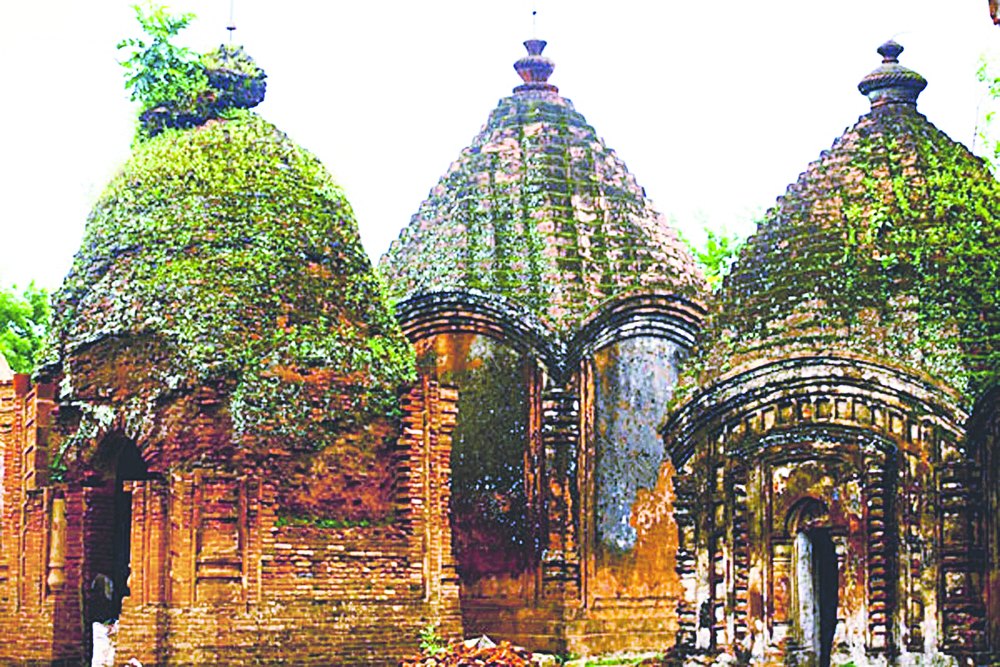
Ranchi, April 20: Dumka's famed but neglected terracotta temples in Maluti may soon get an autonomous special purpose vehicle (SPV) for its restoration.
Indian Trust for Rural Heritage and Development (ITHRD) will submit its proposal for an SPV to the state art and culture department tomorrow in the wake of extensive talks between ITHRD chairman S.K. Mishra and chief secretary Rajiv Gauba earlier this month.
The department will place it before the cabinet for its sanction.
The proposed Maluti Development Authority, once it comes into force, will be an SPV with autonomous powers to bypass bureaucratic hurdles.
A source in the state art and culture department told The Telegraph how the SPV would help matters. "ITHRD will submit a final draft on SPV tomorrow after which we will proceed further. Once the draft is approved at the department's level, it will be forwarded for cabinet approval to formally constitute a body. It will have three representatives each from government and ITHRD to take care of day-to-day functioning," he said.
On how the SPV model will help Maluti's conservation, he said: "It will have the autonomy to work."
Maluti wasn't included in the list of 26 projects of Jharkhand identified by government of India for central funding of Rs 100 crore about five years ago under the 13th Finance Commission. On the state stressing on Maluti, in 2011, the Centre promised to look at the terracotta temple town as a separate and independent project.
Though the Centre again assured the state of full support, nothing happened till the triumphal march on Rajpath this Republic Day of a state tableau modelled on Maluti's historical temples trained the spotlight on the originals.
Two months ago, the state government convened a cabinet meeting to sanction Rs 22 crore to develop Maluti as an international tourist and heritage circuit, exhibiting renewed vigour in restoring around 60 of the 108 neglected terracotta temple structures.
Contacted, art and culture department secretary Avinash Kumar said the SPV planning was in its initial stages and he would prefer to speak when it was final.










